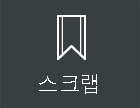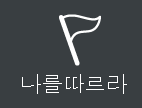
29개월 서진이한테 아직은 좀 어렵지만 볼수록 괜찮은 책 같네요..
현악기와 관악기가 주로 나오지만, 악기의 종류와 함께
수 개념까지 짚어볼 수 있는 그림이 아주 화려한 책이네요..
내용과 음악도 잘 맞아떨어지고요..
음악회에 가보는 활동과 같이 했는면 좋았을텐데 좀 아쉽네요..
▶ 무대 만들기
 빈 상자를 활용해서 연주회 무대를 꾸며봤어요..상자크기는 30*20*10이고.. 가운데를 테두리만 남기고 오려줍니다..
빈 상자를 활용해서 연주회 무대를 꾸며봤어요..상자크기는 30*20*10이고.. 가운데를 테두리만 남기고 오려줍니다..

상자 안쪽은 분홍색, 주황색 시트지를 사용해서 붙여주고..
겉에는 부직포로 커튼을 만들어 달아줍니다..

연주자들은 코팅해서 풍선꽂이에 세워주구요..
이 그림을 보면서 각 악기들을 어떻게 연주하는지
자연스럽게 알 수 있으면 좋겠네요..
지휘자도 만들었답니다..

연주자들이 하나씩 늘어갈 때마다 숫자를 짚어주고요..

Seo-Jin, look at these people. (서진아, 이 사람들을 봐봐.)
What are they doing? (무엇을 하고 있지?)
They are playing musical instruments. (악기를 연주하고 있네.)
We call them as musicians. (음악가라고 부르지.)
There is a consert hall. (이건 연주회장이란다.)
Let's set up the musicians at the consert hall one by one.
(연주회장에 음악가들을 하나씩 세워보자.)
How many musicians are there? (몇명이 있지?)
Should we count them together? (같이 세어볼까?)
One, two, three, four. There are four. (하나, 둘, 셋, 넷. 네 명이 있네.)
Four people are playing together. (네 사람이 연주를 같이 하고 있네.)
It is called Quartet. (4중주라고 불러.)
There are different names according to the number of people.
(사람 수에 따라 부르는 이름이 다르지.)
Solo, Duo, Trio, Quartet, Quintet, Sextet, Septet, Octet, Nonet.
▶ Zin, zin, zin a violin 소개 동영상 감상
스토리텔링용 동영상보기
책 내용 소개(5분 30초 소요)를 포함한 30분짜리 동영상인데요..
줄리어드 프리 컬리지의 연주장면도 있어 한 번 보여줄 만 한 것 같아요..
책 소개 부분은 2분 40초부터 시작합니다..
▶ 악기 인지 및 매치

실사 악기 그림을 코팅해서 매치시켜 봤답니다..
Let's match the musical instruments. (악기들을 매치시켜보자.)
What is she playing? (이 사람은 무엇을 연주하고 있지?)
She is playing the flute. (플룻을 연주하고 있네.)
Can you find it? (찾아 볼 수 있어?)
He is playing the French horn. (이 사람은 후렌치 혼을 연주하고 있네.)Can you find it? (찾을 수 있겠니?)
It is called a harp. It is a really big, isn't it? (이건 하프라고 불러. 정말 크지?)
The harp is a big instruments with 47 strings. (하프는 47개의 줄이 있는 큰 악기란다.)
....
▶ 악기 분류 활동
 Let's divide the musical instruments into four groups.
Let's divide the musical instruments into four groups.(악기를 네 종류로 나누어보자.)
Violin, harp, cello belongs to the strings.
(바이올린, 하프, 첼로는 현악기에 속한다.)
All the instruments of this family have strings.
(현악기에 속하는 모든 악기는 줄이 있지.)
Flute, clarinet, oboe, basson belong to the wood winds.
(플룻, 클라리넷, 오보에, 바순은 목관악기에 속한다.)
Woodwinds are long narrow tubes with holes.
(구멍이 있는 길고 좁은 관처럼 생겼어.)
Trombone, trumpet, french horn belong to the brasses.
(트럼본, 트럼펫, 후렌치 혼은 금관악기에 속해.)
They are made of brass.
(황동으로 만들어졌지.)
The percussion family includes lot of instruments.
(많은 종류의 악기가 타악기에 속한다.)
You hit it, shake it, or scrape it to play.
(치고, 흔들고, 긁어서 연주하지.)
Cymbals, Timpani, bass drum, piano belong to the percussion.
(심벌즈, 티파니, 바스드럼, 피아노가 타악기에 속한다.)
▶ 추천 사이트
각 악기의 설명과 함께 소리까지 바로 들어볼 수 있어 함께 활용하면 좋을 것 같네요..
● Instruments of the orchestra http://www.sfskids.org/templates/instorchframe.asp?pageid=3
● Families of the orchestra http://www.dsokids.com/2001/instrumentchart.htm
● Energy in the Air http://library.thinkquest.org/5116/
● Instrument Encyclopedia http://www.si.umich.edu/chico/instrument/


 쑥쑥몰
쑥쑥몰
 체험이벤트
체험이벤트
















 [과학수학]▶ 수학놀이 - 5의 합 만들기 게임
[과학수학]▶ 수학놀이 - 5의 합 만들기 게임 








